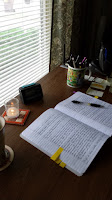THE SHOE COBBLER’S CHILDREN GO BAREFOOT
I must’ve been a teenager before I caught on (had other things on my mind)—and it all came to me when I realized: I’d never lived in a finished house that my dad built. So my take on the old adage runs like this: The Carpenter’s Children Never Live in a Finished House.
Now, right there, I have to admit, that’s a lie—only a little one, though; we lived in the house where I was born, built by my dad, and completely finished, until I was three. From then on, we lived in one (sometimes dilapidated) dwelling after another while the “new house” was being built. My dad had a regular job to provide income, so building our new house always happened when he got home from other work. He couldn’t quit his day job because that income provided the means of purchasing lumber, wiring, cement, windows and doors, and the good old etc. that were needed to complete the new project. And when it was done? Why, sell it, of course! Use the new money to start another house!
I remember a lot of those “other” houses—not because they were especially memorable, but because we moved so often and I had different sleeping arrangements. My preference was, naturally, the new house, when it was finally habitable—it was clean, smelled like new pine boards, and looked nice.
-----
I tell you the above tale to lead
into something I’ve thought about over the years—the way we pass along our life
lessons; our take on life as it happened to us and may be useful to our
children; or simply, how I lived during my young years when my children didn’t
know me at all.
Recently, I read a meditation written by Father Adam Trambley for Forward Day by Day. Paraphrased, the one for August 21st runs like this:
During this time of COVID, many
persons are in hospitals and isolated from their loved ones. “Even after a
death, families are unable to hold the usual public viewings or church services
where lives are remembered and stories shared. The absence of these normal
activities of grieving makes the pain of a loved one’s death even more difficult.”
He continues: Words of wisdom and meaning of life “might occur in a final letter to loved ones, be recounted in a eulogy or at a wake, or be implied in an obituary or other remembrance. Each life has something to pass on to us. Part of honoring the dying is ensuring they have an opportunity to share that gift.” (emphasis mine)
Each life has something to pass on to us.
That sentence jumped off the page
and landed in my heart and mind. Now I’d like to share some of what has been
passed along to me. Can’t promise I’ll remember who authored each “something”
but I’ll try.
Here are a couple that will ring some chimes—home-grown advice on how to live:
“Always wear clean underwear in case you’re in an accident and have to go to the hospital.” (If you never heard this one, you probably weren’t born at the right time or in the right place.)
“Sing before breakfast, cry before supper.” (I realized, much later, this was my mother’s roundabout way of telling me to shut up so early in the morning. I still like to sing before breakfast, and haven’t noticed any untoward crying before supper in consequence.)
Then there’s the preoccupation
with lack of money and good luck:
“Money on my cup!” – said when bubbles cover the top of the just-poured coffee. (I suspect this one was coined during the Great Depression, when money was extremely tight or even non-existent and everyone was always looking for money. Seeing “money” on the coffee cup was a positive reminder that it could happen.)
“See a pin, pick it up, all the day you’ll have good luck.” Luck, like money, was an important consideration during hard times. Personally, I’ve never noticed any increase in good luck due to my picking up a dropped pin. The only good luck would be that I didn’t step on the pin while barefoot.
-----

Other old family sayings were much more helpful. Such as:
“Anything worth doing, is worth doing well.” (Common sentiment during my youth. I heard it often from my parents. However, striving to do something well often ended up in frustration because what I did was far from perfect. I’m not a fan of perfectionism. I prefer the learn-from-your-mistakes approach.)
“Don’t judge; walk in the other person’s shoes a while.” (My mom said, “Put yourself in their place.” That piece of advice really stuck with me. As the current saying goes, it’s part of my DNA. With maturity came a better understanding of how far I could go with putting myself in another person’s situation. Sometimes it wasn’t a good idea.)
And when I got older, I learned
that “beauty isn’t only the outward appearance of a person—true beauty reflects
the person’s inner being—their heart.” (This one will always be true for me.
And the older I get, the more beauty I see in other people. What a blessing!)
-----
The take-away from this essay was going to be wisdom/advice/etc. I had passed on to my children. But as I worked through the family sayings, it became clear: Passing the torch isn’t about teaching, it’s about doing. The old expression—“caught, not taught”—comes to mind.
If you’re not up for writing a
memoir of your childhood experiences, have a think about what your young
relatives know or do or ask about. They may have caught something already!












